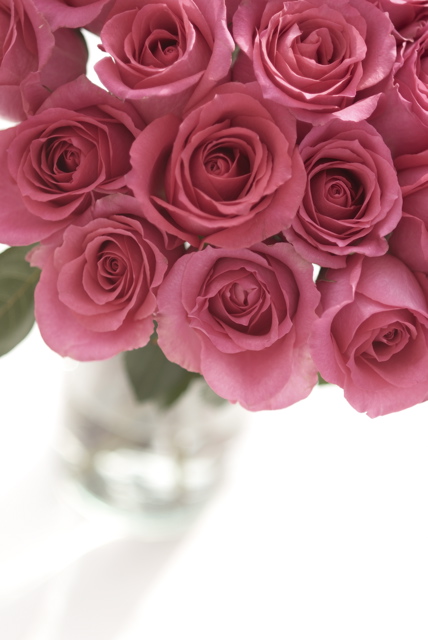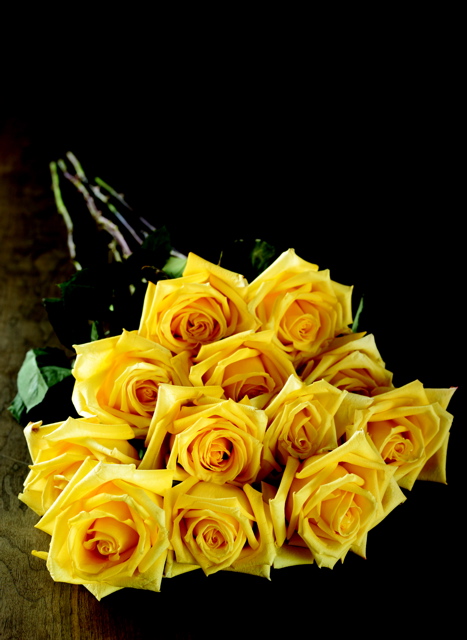
 Americans will purchase roughly 110 million roses for Valentine's Day gifts. Purchasing fresh flowers for our sweethearts while poisoning farmers and their families is so yesterday. Come on already! Today it's about purchasing flowers from a floral company that cares about environmental, social and economic sustainability. One such floral company is Organic Bouquet. You may be asking yourself why we need "organic" flowers if we're not going to be eating them. Good question, but the answer requires a little background.
Americans will purchase roughly 110 million roses for Valentine's Day gifts. Purchasing fresh flowers for our sweethearts while poisoning farmers and their families is so yesterday. Come on already! Today it's about purchasing flowers from a floral company that cares about environmental, social and economic sustainability. One such floral company is Organic Bouquet. You may be asking yourself why we need "organic" flowers if we're not going to be eating them. Good question, but the answer requires a little background.
According to the USDA, Seventy percent of all flowers sold in the United States are grown in Colombia and Ecuador. In Ecuador, the second-largest exporter of flowers to the United States, 60 percent of workers suffer from headaches, nausea, blurred vision or fatigue, according to a 1999 study by the International Labor Organization. Doctors in Cayambe, the rose capital of Ecuador, confirm these findings and add birth defects, sterility and miscarriages to the list. On average, each rose grower in Ecuador uses three poisons to kill worms, four to kill insects and six to control fungi according to the National Wildlife Federation. Many of these chemicals are tightly restricted in the United States because of their threat to human health."Being sustainable is not just about our company, it's about our partners, our industry associates and our customers, " says Robert McLaughlin, CEO of Organic Bouquet. "A sustainable product is more than just one farm and one plant; it's about an industry, a country and a global understanding."
McLaughlin started his career in 1984 in the packing sheds and greenhouses of central Florida working as a laborer. It was here that he watched the head agronomist die at an early age of 68 from toxic chemical exposure. He describes his boss as a "man whose skin seemed to be falling off his face" from years of over-spraying in the greenhouses. "The man rarely wore protective gear and seemed to always return to the packing shed soaked in the chemicals that would eventually end his life."
Just like "organic" produce, "organic" flowers are grown and harvested using the same techniques preachy organic gardeners, like yours truly, are always ranting about; compost, compost tea, mulch, cover crops, attracting pollinators and beneficial insects, I. P. M. (integrated pest management) and water conservation.

Total pesticide use in the United States has remained relatively constant at about 1 billion pounds per year, over the last ten years. According to Pesticide Action Network, there are now roughly 17,000 pesticide products registered with the EPA. (Oy! God help us!) When you treat your plants organically they are healthier and more resilient so you don' t have the need to purchase chemical warfare to spray at your backyard bugs. Here's a newsflash: Insects have been here for 400 million years. They're not going away...
The term "organic" tells you something about the conditions under which the product was grown. But, like conventionally grown flowers, it does not promise the crops were grown under fair labor standards or in a healthy work environment. Organic Bouquet is certified by Veriflora, the eco-label certification standard for the floral industry, which was masterminded by Gerald Prolman, founder of the company ten years ago. This way you can be reassured the field workers receive overtime pay and health benefits, and are working in a safer, chemical-free environment. "As CEO of Organic Bouquet, there is a sense of pride that I feel walking through the office doors or around a farm in California or Ecuador," says McLaughlin. "Every product purchased and every supply partner chosen offers a story of responsible commerce, environmental stewardship, social awareness and people that matter."
For more dirt on the global multibillion-dollar cut flower industry, read Flower Confidential: The Good, the bad, and the beautiful in the business of flowers by Amy Stewart.
Go to www.organicbouquet.com to order. 1-877-899-2468
Visit Annie at www.dirtdiva.com
